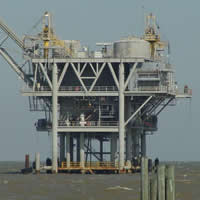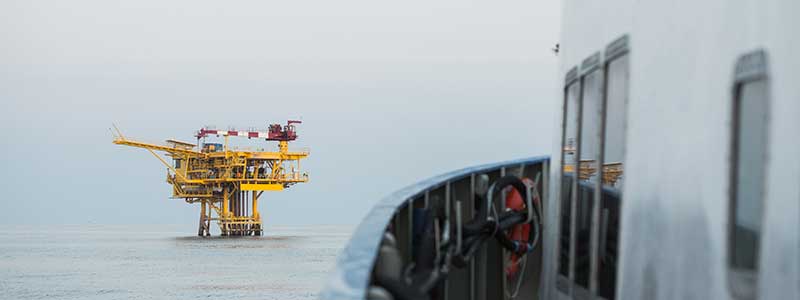Burning Oil to Heat your Home
 Certain areas are not connected to mains gas for reasons such as geographical isolation and in these cases oil fired central heating is one solution.
Certain areas are not connected to mains gas for reasons such as geographical isolation and in these cases oil fired central heating is one solution.
It is considerably cheaper to run than any fuel other than mains gas and therefore a better option than fuels such as bottled gas or LPG. Electricity can also be a viable option, though this is normally only cost-effective in smaller premises.
The use of oil for central heating is increasing with the demand for additional housing, as more properties are constructed in areas where connection to the existing gas infrastructure is difficult or impossible.
This section is designed to provide useful information for anyone purchasing a property with an existing oil fired installation, those looking to upgrade an existing installation and those considering installing oil fired central heating for the first time.
Oil fired systems rely on oil being delivered to the property by tanker and being stored in a suitable purpose-built above ground storage tank connected to the heating system. The fuel is then drawn from the storage tank by the boiler as required. These tanks are quite large and unsightly and difficult to disguise and there are also strict regulations on where are allowed to site them.
Another consideration is that should the oil supply in the tank be allowed to run out, an engineer would be required to prime the boiler again and the system could not be used until a further fuel delivery had been received and this procedure carried out.
Improvements incorporated into modern oil-fired boilers have led to manufacturers claim operating efficiencies of up to 95%. As with gas fired boilers, condensing boilers will usually offer the greatest efficiency, though choice is limited and they are significantly more expensive to purchase. The SEDBUK website (http://www.boilers.org.uk) offers a huge database of the various types and models of available boilers and rates the efficiency of the individual models as well as offering useful projections of typical fuel usage in a given scenario for each individual model.
As with gas, oil fired combi boilers are also available, providing hot water on demand with no requirement for a hot water storage tank. These are generally slow to provide hot water when compared with gas combi boilers, and would generally only be recommended except for smaller properties.
Oil fired boilers are available with both balanced flues and open flues. A balanced flue consists of a second pipe running inside or surrounding the exhaust pipe, typically taking in air for combustion from outside the building. An open flue is where the air required for combustion is drawn from the area or room that the boiler is situated in. Balanced flue boilers are typically considered to be safer and there are also fewer restrictions on where they can be sited. It is dangerous to install an open flue boiler in an otherwise sealed living area as it is perfectly possible that the air inside that area will be consumed, leading to the suffocation of its inhabitants. As balanced flue boilers take their air from outside and also expel their exhaust gases to atmosphere, this is not possible.
The vast majority of domestic oil fired central heating systems in the UK use 28sec oil, also sometimes known as kerosene. This fuel burns more cleanly than heavier oil products such as gasoil, which is also known as 35sec heating oil. One benefit of 28sec oil is that it can also be used in kitchen ranges such as AGA cookers.
In line with environmental concerns, (as with petrol), the sulphur content of oil has decreased and this has altered the characteristics of the oil itself. Some domestic oil suppliers have added additional lubricants to the oil to enable it to be pumped from the storage tank to the boiler more easily. Modern pumps have been engineered to operate effectively with low-sulphur fuels and so it is typically only older systems that would be affected. Your supplier should be able to advise you as to any potential benefits from using oil with added lubricants.
A modern high-efficiency oil system can provide an environmentally acceptable alternative, especially for homes that are not connected to the gas main. As with all heating systems, regular servicing and maintenance will help the boiler operate more efficiently, and it is important to match a boilers to suitable modern central heating controls.
Many people are concerned by the effects of global warming and seek to become more responsible for their share of ‘greenhouse gas’ emissions. The gas that is considered to be chiefly responsible for global warming is carbon dioxide, or CO2. Official figures from DEFRA, the Department for the Environment, Farming and Rural Affairs (UK) indicate a carbon content for domestic heating oil (28sec) of 0.24kgCO2 per kWh, compared to figures of 0.214kgCO2 per kWh for LPG and 0.19kgCO2 per kWh for gas. These figures are for gross calorific values, and a typical “A” rated condensing oil boiler achieving 95% efficiency would be responsible for around 5% more CO2 in use than specified above. Interestingly, the equivalent gas condensing boilers are a little less efficient in terms of carbon dioxide production. Oil fired systems could be considered to produce 10% more CO2 compared to LPG and around 20% compared to mains gas.
Oil Efficiency
Existing oil fired boiler installations can potentially be made more efficient by fitting a room thermostat, ideally located in a living area and not a hallway.
Thermostatic radiator valves (TRVs) should be fitted on all radiators where a bypass is fitted to the system and on all but one of the radiators where a bypass valve is not fitted. An electronic 7 day timer (with separately programmable hot water and room heating if
possible) will ensure that heat is only provided when required and not when the house is not occupied for long periods and quality controls will also reduce wear and tear onm the boiler by avoiding unnecessary cycling of the boiler. A cylinder thermostat on the hot water cylinder will ensure that the water is only heated as required.
Oil Safety
Although there is no legal requirement for oil fired boilers to be installed by a specially trained person, we strongly recommend that all servicing and installations are carried out by people engineers that are registered with Oftec, the oil fired technical association.
It is also worth contacting the Energy Efficiency Advice Centre (EEAC) on 0800 512012 and asking them if they can give you a list of recommended installers in your area.
We would recommend that all oil fired systems are fitted with an automatic shut-off in the event of fire. This will prevent a fire spreading to the external oil tank.

